
QUEER EURIPIDES
Also available from Bloomsbury
EURIPIDES
by Isabelle Torrance
THE MATERIALITIES OF GREEK TRAGEDY
edited by Mario Tel and Melissa Mueller
THE PLAYS OF EURIPIDES
by James Morwood

CONTENTS
We are grateful to Georgina Leighton and Alice Wright at Bloomsbury for their enthusiastic interest in this project, to Lily Mac Mahon for shepherding the volume through production, and to our five supportive anonymous referees for their comments and suggestions. We also want to thank the people who joined our contributors in five Queer Euripides workshops held online between February and May 2021: Catherine Conybeare, Katie Fleming, Sara Lindheim, Helen Morales, Naomi Weiss, and especially Jack Halberstam. Several of the contributors to this volume participated in the events sponsored in 20201 by Queer and the Classical (QATC), and we would like to express our deep gratitude to the QATC organizers for creating space for these conversations.
Unless otherwise indicated, the texts of Aeschylus, Sophocles, and Euripides are cited according to the most recent OCT editionsby Page (1972), Lloyd-Jones and Wilson (1990), and Diggle (198194), respectivelyand the contributors have used their own translations.
Mario Tel and Sarah Olsen
Anarchical, clever, decadent, iconoclastic, ironical, irreverent, pre-postmodern, revolutionary, transgressive: these
Medea, Phoenician Women, Orestes: the plays that compose the canonical triad (trio, threesome, throuple) of Euripidesoften cast as the most uncanonical tragedianevince an abiding interest in forms of aesthetic and political anti- or non-normativity that we can call queer or Before situating the books concerns and goals in broader and more abstract terms, we wish to introduce its agendaexperiments in re-reading and, to an extent, re-inventing the Euripidean corpusby exploring some of the concrete ways in which those three plays communicate or resonate with different current conceptualizations of queerness. The initial excursus will provide a sense of this project as a theory and practice of (re-)reading, a demonstration of how we can read Euripides otherwise, but also of how a queer approach can alter the modalities of reading (in) classics as a whole.
A tragic fiascoSuppliant Women (see Mario Tels chapter).
In
Along similar lines, the twenty-one chapters of Queer Euripidescovering the surviving corpus of complete plays, including the satyr drama arise from Euripides manipulation of time and poetic form? How might we consider the significance of those forms beyond the contextualist considerations of the sexual, affective, and social practices that, on the basis of other literary works, we view as contemporaneous and thus relevant to the production and performance of his plays? How do these relationships twist the subject/object positions and the ever-present boundaries of what we call gendereven when we conceive of it as fluid, unstable, indeterminate? Which modes of resistance are projected by queer kinshipunderstood as a set of representational and practical strategies for accommodating all the possible ways one human beings body can be vulnerable and hence dependent upon that of another (Freeman 2007a, 298)?
* * *
Rather than adhering to a single school of thought, this volume aims to showcase multiple ways in which queer theory, and also to expand queer theorys purview and extend its range of figurations, expressions, and possibilities. This book is a narrow strait (euripos) in its specific focus upon the corpus of the ancient playwright Euripides and the interventions of largely self-identified queer theorists, but it is a tumultuous and paradoxically wide (eurus) one, capacious enough to allow multiple reading modes.
We hope that this image of constriction, even intimacy, paired with tumult and breadth will prove productive for the study of can also help us at once problematize the methodological divide between the analysis of the plays themselves and the study of their receptions, and read genders (including no-gender) and sexualities not simply as potential bridges between literary imagination and social practices (ancient and modern), but as complex, imaginative anti- or non-normative modes of discursive and embodied becoming materialized in tragic form.
Some of the critical language employed to assess Euripides generic experimentalismcomic, melodramatic, romantic, weird
We can similarly re-evaluate Ann Michelinis catalog of Euripides ostensibly defective
This book also integrates elements of reception throughout, rejecting the common structure of the companion volume that concludes with the (often selective) consideration of an ancient author, text, or theme in modern times. We have done this in order to both acknowledge the ways in which readings of sexual difference in tragedy are conditioned by the times and contexts in which we read, and also to unsettle the assumption that ancient texts and interpretations must take precedence over modern ones. Rejecting what Kadji
We believe that notwithstanding the illusion of historical situatedness afforded by the ancient Greek idiom, the text is diachronically stratified, hosting multiple contexts shading into each other that have been or will be actualized in experiences of reading (Tel 2020, 9). To conceive of the interpretive act not as the impossible inhabiting of irreproducible, historically determined cultural codes but as a creative experience, in which the interpreting subjects and the interpreted artworks temporalities deterritorialize each other, lays the ground for productive forms of interpretive escape routes can emerge from the very uncertainty of the ancient text, and queer reading can unravel philologys normative desire to re-constitute, (re-)create tragic form.
Reconsidering Euripidean relationalities through twisted arrangements of tragic form that yield unceasing semantic spirals (Tel 2020, 279) can further help us recover an expansive spectrum of prepositional and disidentificatory conditions (between, beside, by, toward, within, etc.); sociabilities, socialities, and sodalities disposed along horizontal or diagonal orientations; and a rhizomatic multiplicity of proximities, adhesions, and adjacencies. through unpredictable exchanges of virtual and actual; creative juxtapositions and mismatches of chronological registers; and disarticulations of conventional combinations of affect and time: joyful stuckness, ecstatic immobility, energizing crisis, intangible presents, fertile pasts, sterile or wildly emancipatory futures, exuberant backwardness, futural regression, projective presents, achronic punctualities, disjunctive synchronies. These and other possibilities are, explicitly or implicitly, opened up in the chapters of this book, which we hope will mark a new phase of Euripidean and tragedy studies.
As we can infer from Jonathan Goldbergs analysis of Euripides, Going further, we can regard the overdetermined, impossible relationality between the stepmother and Artemis devotee (asexual? homosexual? a male lesbian?) as not simply the target of repression, of a phobic interpellation whose violence is reflected in textual fragmentation, in the loss of the original, edgier version, but as the realm of an achronic, almost utopian, ancestrality, or a futural regression, materialized in the void of virtualities left by the disappearance of the scandalous first play. These virtualities, however, still come through, in a sense, in the version that we have, in which we are drawn toward minoritarian attachments, queer eroticized proximities (between Artemis and Hippolytus, Aphrodite and Hippolytus, Aphrodite and Phaedra, Phaedra and Artemis, and perhaps even Aphrodite and Artemis) that multiply and problematize the dyadic but also the triangular through affective overlaps and disorienting simultaneities.
Next page
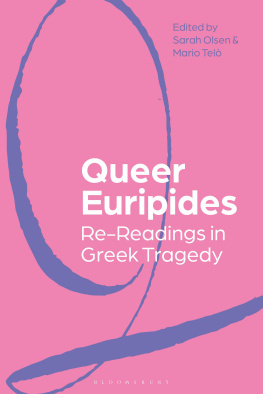

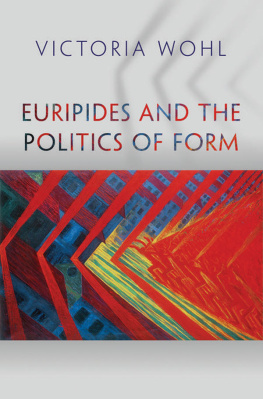
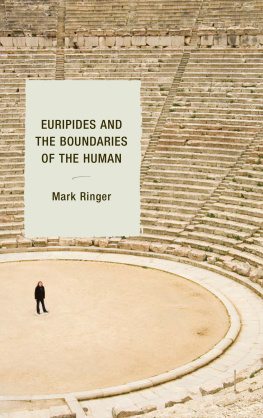
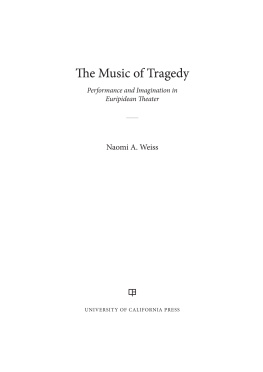
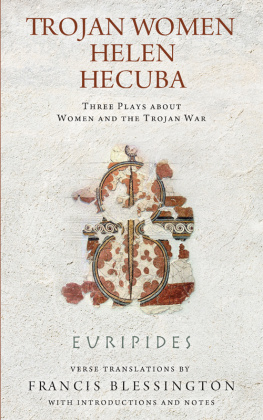
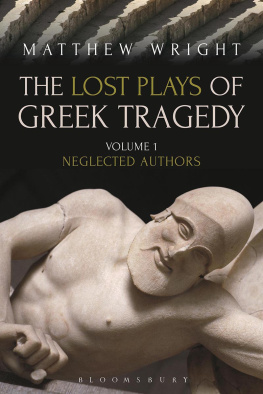
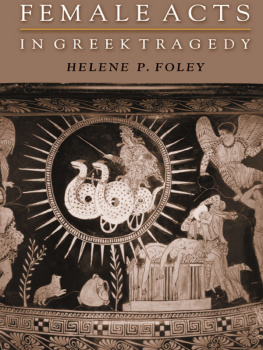
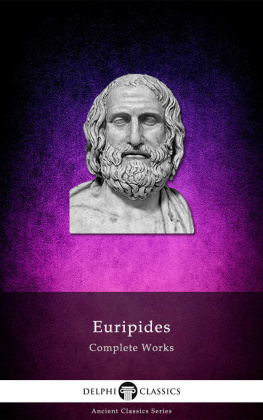
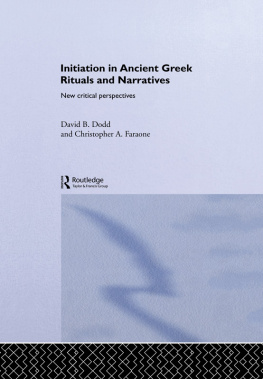
![Euripides - Classic Greek Drama: 10 Plays by Euripides in a Single File [NOOK Book]](/uploads/posts/book/43473/thumbs/euripides-classic-greek-drama-10-plays-by.jpg)

